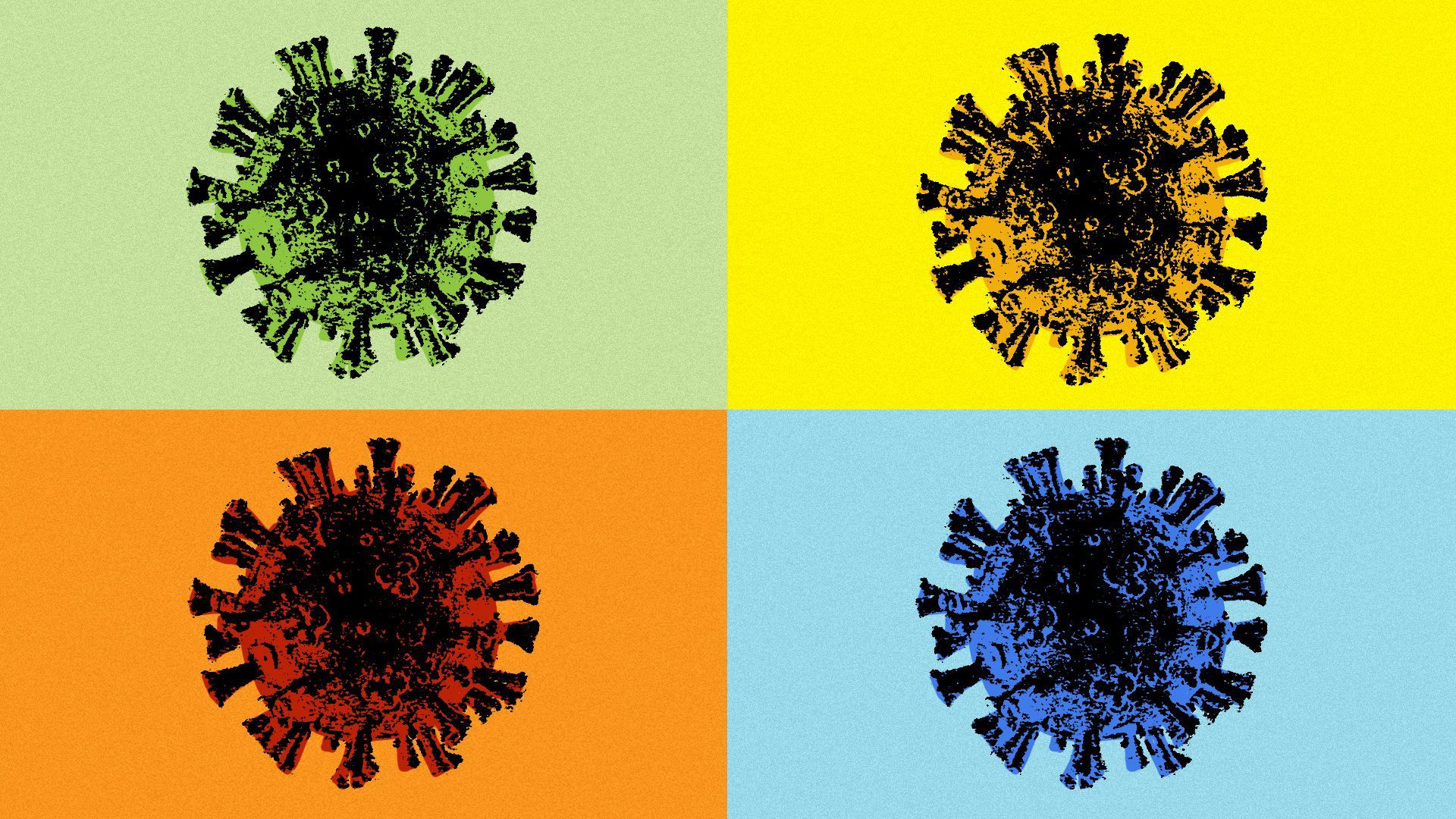Fauci says COVID variants threaten some treatments more than vaccines
Add Axios as your preferred source to
see more of our stories on Google.

Illustration: Aïda Amer/Axios
The COVID-19 variants first detected in the U.K. and South Africa and now circulating globally aren't a current threat to the effectiveness of the first vaccines, but mutations will be closely monitored because "they could be an issue," NIAID director Anthony Fauci tells Axios.
The big picture: Vaccinations are underway, albeit with a slow start. The get-back-to-normal-goal depends on reaching 70%–85% herd immunity in the population, Fauci says. While there are some concerns the mutations might circumvent the vaccines, he says they pose more of a problem for certain treatments than for vaccines.
What's happening: Viruses mutate frequently, but often those changes are small and don't cause issues with treatments or vaccines. Public health officials have been tracking SARS-CoV-2 variants closely.
- The CDC is monitoring at least two COVID-19 variants that appear to increase transmission of the disease: the B.1.1.7 variant first detected in the U.K., and the 501.V2 variant spreading rapidly through South Africa.
B.1.1.7 doesn't appear to be more virulent or to obviate the effect of the vaccine, based on what British doctors are saying, Fauci says.
- B.1.1.7 is more transmissible because it binds more readily to the ACE2 receptor, which is how the virus enters cells.
- That pushes the need for faster vaccinations, says Carlos del Rio, distinguished professor of medicine at Emory University School of Medicine.
- "If the R-naught goes from 2.5 to 2.9 in a totally naive population, after 10 cycles of transmission, instead of 9,000 people infected, you have 42,000 people infected," del Rio warns.
The 501.V2 variant is "a little bit more concerning regarding the possibility of interfering with some of the monoclonal antibodies," based on preliminary findings, Fauci says.
- Monoclonal antibody treatments precisely target one specific region of the virus and "if the mutation happens to be at that epitope, that could obviate the effect" of the treatment, he says.
- Vaccines, on the other hand, "induce a polyclonal response against multiple different aspects of the spike protein," Fauci points out. "For something to really circumvent the efficacy of the vaccine, it's got to have a lot of mutations that are all at the right places."
What they're watching: Scientists are following the strains and testing them against the vaccines.
- "If it doesn't impact the vaccine, you're good to go. If it does, you have to make some minor modifications of the vaccine to be able to circumvent the changes that occur in the mutations," Fauci says.
- With the "plug-and-play" nature of the mRNA vaccines, it is much easier to alter the makeup of those vaccines, he adds.
- And because there's now a large amount of data about the mRNA-based vaccine platform, "it is likely the FDA would consider it merely a strain change, which doesn't require starting from square one," he says.
The bottom line: "You always have to take these things seriously, follow them closely, and hope there will not be a problem. But, if there is, you have to adjust to it," Fauci says. "And now we have the technology to do that pretty easily."
